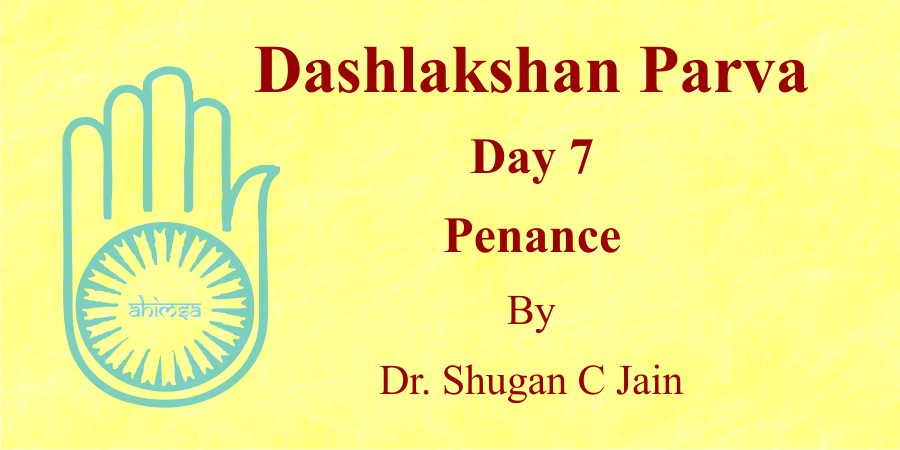Literal meaning of tapa in Hindi is to heat profusely to purify. For example, purifying gold by melting it and removing its impurities. As a spiritual virtue, it means to use our inherent energy and will power to purify ourselves of the evils/undesirable traits and habits, similar to heating the injection needle to make it sterile (free from any infectious material attached to it).
How can I purify myself? My answer is ‘Persistent single-minded strenuous effort to achieve our objective’, like persistent and regular studies eliminate our ignorance of the subject being studied. See the difference, so far, we are talking about giving up, exercising control etc. and now we are talking about persistent effort. Please remember persistent effort is made in association with all the controls and virtues we have talked about so far. For example, in self-restraint, we talked about controlling our food urges; now we are talking of giving up a particular type of food or the food completely for a specific period of time. Penance helps us eliminate the residual evils (anger etc.) and our past bad karmas/actions to achieve higher levels of happiness.
Penance is broadly classified as external and internal, each of six sub types. Let us discuss the ones of immediate use to us:
External: To observe fast to enhance self-restraint, semi fasting or eat less than your normal diet, to give up some type of food daily, to endure bodily afflictions (like cold, heat, mosquito bite, hard or soft bed, insult etc.) and to practice penance by being in a solitary place for some time. These help the practitioner in developing physical dexterity and exercise self-restraint easily. External penance differs from a hardship in that it is performed willingly as per our inner feelings regularly while hardship occurs randomly. Internal: To pay reverence/respect for learning and the learned, expiation/ repentance of the wrong acts done daily (like confession in Christianity) and promise not to repeat them, to study regularly about the subject that helps you achieve your objective, to meditate (restrain wandering nature of mind and focus on the object of meditation), to serve (elders or the sick virtuous) and so on.
Let us now see how it is practiced in different life situations:
In the family: To be respectful to each other and serve them or take care of them when needed. To shut yourself to TV, internet etc. for some time daily to focus on your objectives and things pending for some time.
In school/college: To be respectful to teachers and other students for their achievements, to study regularly, to take criticism in the right perspective for improvement.
Dealing with society, government: To pay reverence to the law and its administrators. To accept mistakes and promise to rectify them.
Lifestyle: We shall understand these through some examples:
Observing external penance helps us in keeping our digestive system in good order and keeps us away from several lifestyle problems due to excessive consumption of food, stimulants. Maintain a diary for keeping record of mistakes committed and the promise of their rectification. Meditation helps us in achieving relief from stress and enhances our intellectual and professional capabilities.
Penance can thus be summarised as willing and persistent strenuous efforts to achieve our objective, keeping our inherent virtues and nature of being happy in mind. If penance is not self-chosen, it will result in ill effects on the practitioner.

